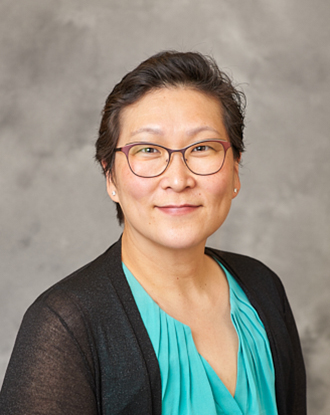Colorectal Cancer Awareness
When found early, colorectal cancer is easier to treat and highly curable. Yet, the American Cancer Society estimates that the lifetime risk for developing colorectal cancer is about 1 in 23. Both men and women are at risk—even more so in African American and Latinx communities.
PacMed is passionate about getting you the care you need, especially if you are in a group at higher risk.
Five important things about colon cancer:
- When colon cancer is caught early, 90% of people survive. If you wait until the cancer spreads, survival can drop to 14%.
- Colonoscopies and other screenings help you avoid colon cancer.
- Colonoscopies have recently become easier and more comfortable for patients.
- African American and Latinx people are screened less for colon cancer than white people—and die from it more often.
- Screening for colon cancer should begin by age 45, or earlier for African Americans or if you have family history or other risk factors. You should ask your primary care provider how and when to begin screening.
Ready to get screened?*
Current Patients:
Ask your doctor for a referral
or call 1.844.66COLON
New Patients:
Meet a doctor to discuss
Not ready to get screened?
Let us know why!
We want to know about the barriers, so we can keep you healthy.
This email is unsecured, and is for general information only. Please do not use this email for questions or comments regarding personal health information, or for time-sensitive matters.
Not sure? Learn more below.
Colorectal Cancer Screening: What to Expect
(National Cancer Institute, 2019)
Open in YouTube for captions and translation options.
¡Que no le de vergüenza! ¡Hable con su proveedor de salud sobre el cancer colorrectal!
(National Alliance for Hispanic Health, 2002)
Stay Healthy
- Get screened at age 45, or sooner if you are at higher risk
- Maintain a healthy weight
- Adopt a physically active lifestyle
- Eat a fiber-rich diet that includes whole-grains, beans/legumes, fruits and vegetables
- Stop smoking
- Limit alcohol intake
What is a Colonoscopy?
A colonoscopy is a 15- to 30-minute test that enables a doctor to look inside your entire large intestine and into the rectum through a long, flexible, narrow tube with a light and tiny lens on the end. The physician can see things such as abnormal growths and inflamed tissue. While the test is most often used to look for early signs of colorectal cancer, it is also used to look for causes of unexplained changes in bowel habits and to evaluate symptoms like abdominal pain, rectal bleeding and weight loss.
At PacMed, patients can call 1-844.66COLON (1.844.662.6566) and schedule an appointment with one of our gastroenterologists to discuss colonoscopy and other methods of screening for colon cancer.*
Our physicians meet with patients at five of our conveniently located clinics. Procedures are performed at the PacMed Ambulatory Surgery Center (located at our offices on First Hill in Seattle), Swedish Issaquah and Swedish Redmond.
*Always check with your insurance provider to find out if you need pre-authorization or to determine the level of coverage your carrier provides for colonoscopy.
Five things to know about colorectal cancer, explained:
Cancer is a step-wise progression from a normal colon, to having a small polyp (growth), to a larger polyp, and then eventually cancer—over a period of up to 10-15 years. We can’t know which polyps will turn into cancer just by looking at them, so during the colonoscopy we remove all polyps. If the polyps are removed, colon cancer is prevented. You can’t “feel” colon polyps like a breast lump or see a new mole on your skin, so a colonoscopy is the most effective way to detect and remove early potential signs of colon cancer.
If a polyp is found and removed, the chance for developing colon cancer is very low. If colon cancer is found in early stages, then survival rates are relatively high. We have excellent treatment options for treating colon cancer, in most stages.
Colonoscopy is always going to be invasive. What makes it an easier procedure is if the bowel prep is good to excellent, meaning that all the fiber and stool has been cleared with a laxative solution prior to the exam. There are better prep options today that require lower volume, taste better, and are pretty well tolerated. We also now use CO2 gas instead of air when we insufflate the colon, so patients have less bloating and discomfort after the procedure. We also use an anesthesia provider who uses propofol to sedate the patient, so you are more comfortable and recover from sedation quicker.
This is thought to be due to many factors, including systemic barriers to accessing health care, time or process to complete the prep, reluctance to talk about colon cancer, or embarrassment about having the procedure or tests that may involve stool samples. Lower screening rates may also be due to language barriers, concerns about the cost of the procedure, especially for the uninsured or underinsured, difficulty getting time off work, or fear of what the results may show.
- Colorectal cancer is the second-most-diagnosed cancer in Hispanic Americans.
- Among African Americans, colorectal cancer occurs more frequently, is more deadly, and is diagnosed at an earlier average age than for other populations.
Persons between the ages of 40 and 75 are at greater risk of getting colorectal cancer than younger people. If you have family history of colon cancer, you may need to start screening earlier than 45. You should ask your primary care provider how and when to begin screening.
PacMed is passionate about getting you the care you need, especially if you are in a group at higher risk.
Seek care immediately if you notice a change in bowel habits, rectal bleeding or blood in your stool, persistent abdominal discomfort, nausea, vomiting, unexplained weight loss and/or chronic fatigue—as these could be symptoms of colorectal cancer.
Helpful Links:
- About Colorectal Cancer: http://www.cancer.org/colon-rectal-cancer/about/what-is-colorectal-cance
- Signs and Symptoms: http://www.cancer.org/cancer/colon-rectal-cancer/detection-diagnosis-staging/signs-and-symptoms
- Recommendations: http://www.cancer.org/cancer/colon-rectal-cancer/detection-diagnosis-staging/acs-recommendations
- Mortality Rate for Colorectal Cancer Higher for Blacks Than for Whites in Major U.S. Cities










